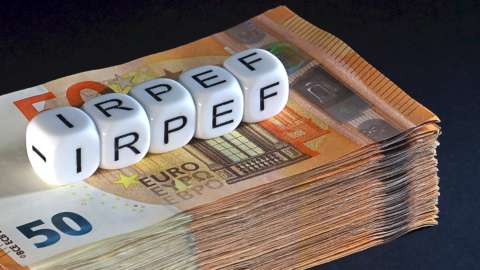La tax reform it will arrive at the Council of Ministers next week. But the backbone of the enabling law with which the Meloni government wants to revolutionize the taxman is now defined. The enabling law is divided into 4 parts e 21 articles. There will be two operational phases: the first involves the creation of unique texts with the related rules and repeals of provisions that are no longer compatible while the second step will be that of codify the tax law. They will, therefore, at least 24 months to adopt decrees and change the tax system. If the project is implemented, Italy will abandon the tax system adopted in 1971 with the Visentini reform. A “ambitious” reform defined it by the Deputy Minister of the Economy, Maurice Leo.
I key points of the reform will be the three-rate Irpef, the revision of the Ires (with two rates), the cut of tax deductions and deductions, the abolition of Irap: the final goal is a flat tax for everyone (not just for the self-employed , but also employees and pensioners) by the end of the legislature. There is also a reduction in VAT on basic necessities and the cancellation of some taxes.
Tax reform: three personal income tax rates
Among the reform hypotheses, therefore, the will to reduce the personal income tax rates from four to three merging the two central brackets. Due the possible ones solutions: the first provides for three rates, one at 23%, one at 27% and one at 43% with an estimated cost to the State of around 10 billion euros, while the second would be three rates at 23%, 33% and 43% %, at a cost of 6 billion euros. The new personal income tax rates will be refinanced through the review of tax expenditures.
Tax reform: reduction of tax deductions
The tax reform passes above all from review of tax expenditures (tax exemptions). It is expected the cutting of the beyond 600 entries of tax deductions which today cost around 165 billion euros each year. It is from here, in the government's intentions, that the savings that will allow the financing of the Irpef, iris and VAT maneuver will have to come. To reduce these expenses we think of one forfeiting with the decrease in deductions as the taxable amount increases: the starting point will be 4% of the taxable income for the lowest incomes, to then go down as the income increases. The intention of the government would be to review most of the deductions which are currently set at 19%. Excluded from the constraint would be the health costs, For the 'education and the deductions on interest expense on mortgages first house.
Tax reform: Ires with two rates
Reformed on two levels the IRES, the corporate income tax. The basic rate would remain at 24% but could drop to 15% if the company invests its profits in innovative investments in the following two years or if it uses them to hire the unemployed, recipients of the new basic income, women or those over fifty
“Let's give one incentive to businesses to employ these subjects, I think we can ensure that the lower IRES taxation is reflected in the creation of jobs. And we obtain a further result because in the face of the reduction in the tax burden for businesses we would have an Irpef tax for the people who are hired” explained the deputy minister of the Economy, Maurice Leo.
Other measures: abolition of Irap and remodulation of VAT
Among other reforms also announced the gradual abolition of IRAP, the regional tax on productive activities, with priority for partnerships, associated studios and professional companies, through the introduction of a surcharge with a tax base corresponding to that of IRES.
Expected the VAT reduction on basic necessities. Among the hypotheses there is that of applying a zero rate to goods such as bread, pasta and milk. It will also point to a rearrangement of baskets to guarantee homogeneous tax treatments for similar goods.
Mortgage and cadastral taxes, special cadastral taxes and mortgage taxes will be cancelled; in their place will come a fixed tax. No more fines and penalties during the months of August and December.
The details of the measures and the methods of financing the reform are not included in the delegation, but will be entrusted to future implementing decrees that the government will have to issue within 24 months.





